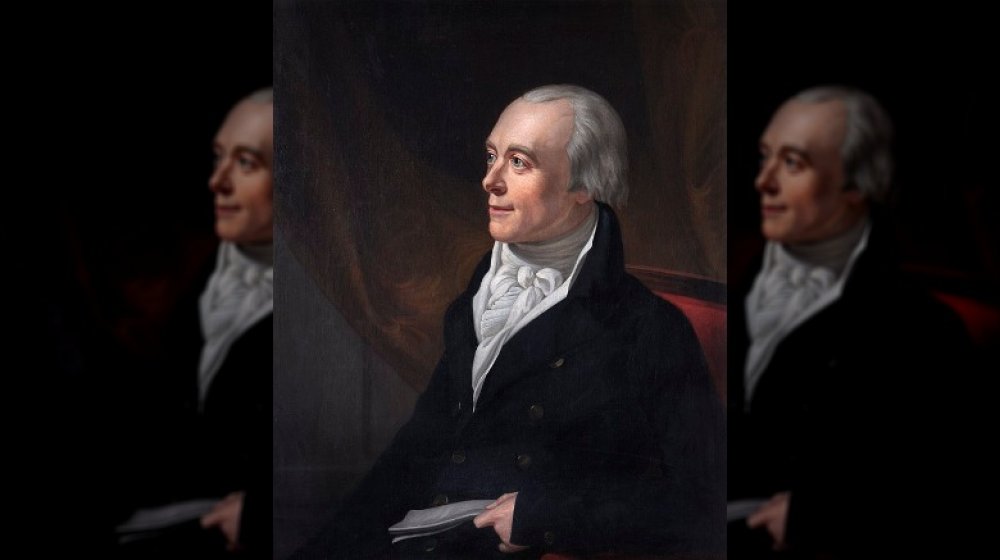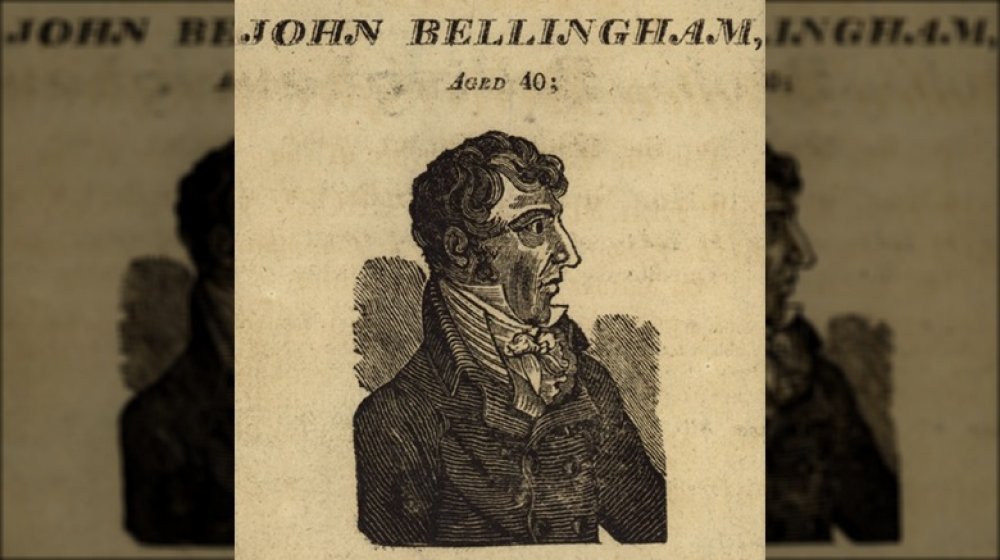The Untold Truth Of The Only UK Prime Minister To Be Assassinated
So far in American history, we've suffered through the national tragedy of presidential assassinations four times: Abraham Lincoln (1865), James Garfield (1881), William McKinley (1901), and John Kennedy (1963). There have been lots of other attempts as well, dating back to at least the presidency of Andrew Jackson in 1835 (both pistols misfired and Jackson used his cane to beat the would-be assassin within an inch of his life). The English, on the other hand, have had a prime minister since Robert Walpole in 1721, generally considered the first of the line of 77 (as of this writing in March 2020), according to the U.K.'s government web site. Unlike the U.S., of that select group of elected leadership, the Brits have had to work through only one assassination: of Spencer Perceval, in 1812.
Perceval was a very successful lawyer by trade who was gradually drawn into politics, as the official U.K. government's history blog tells us. He supported the abolition of slavery and loved his wife very much (they had 12 children together). He held a number of government posts, including Chancellor of the Exchequer (responsible for the country's financial and economic matters), during a time of world political upheaval, including the French Revolution and the rise of Napoleon. Domestically, the Luddites were on the rise, trying to turn back the Industrial Revolution with violence and death.
John Bellingham: Assassin of the Prime Minister
By most accounts, he wasn't particularly politically ambitious — he was simply recognized as capable, the right man at the right time, for good or ill. In 1809 Perceval became Prime Minister of England in 1809. Besides turmoil in continental Europe and at home, there was the rising question of King George III's sanity and ability to rule. With all of these political balls in the air, it might come as no surprise that some faction or other decided to effect socio-political change through gunfire. Not so.
Perceval's assassin was John Bellingham, a businessman who felt he'd been wronged, left uncompensated after he'd been unjustly imprisoned over debt in Russia, as Historynet explains. He believed his government had failed to help him then and since, so Bellingham took matters into his own hands. In the lobby of Parliament in the early evening of May 11, 1812, he fired a pistol at Perceval's heart at nearly point-blank range. Perceval died within minutes. During his subsequent trial, Bellingham insisted he was a) not insane and b) simple seeking recourse by the only means available to him. He was found guilty of murder and executed, one week after fatally shooting Perceval. Former Foreign Minister George Canning called the assassination "foreign to the character and abhorrent to the feelings of Englishmen." And, we hope, everyone else.

